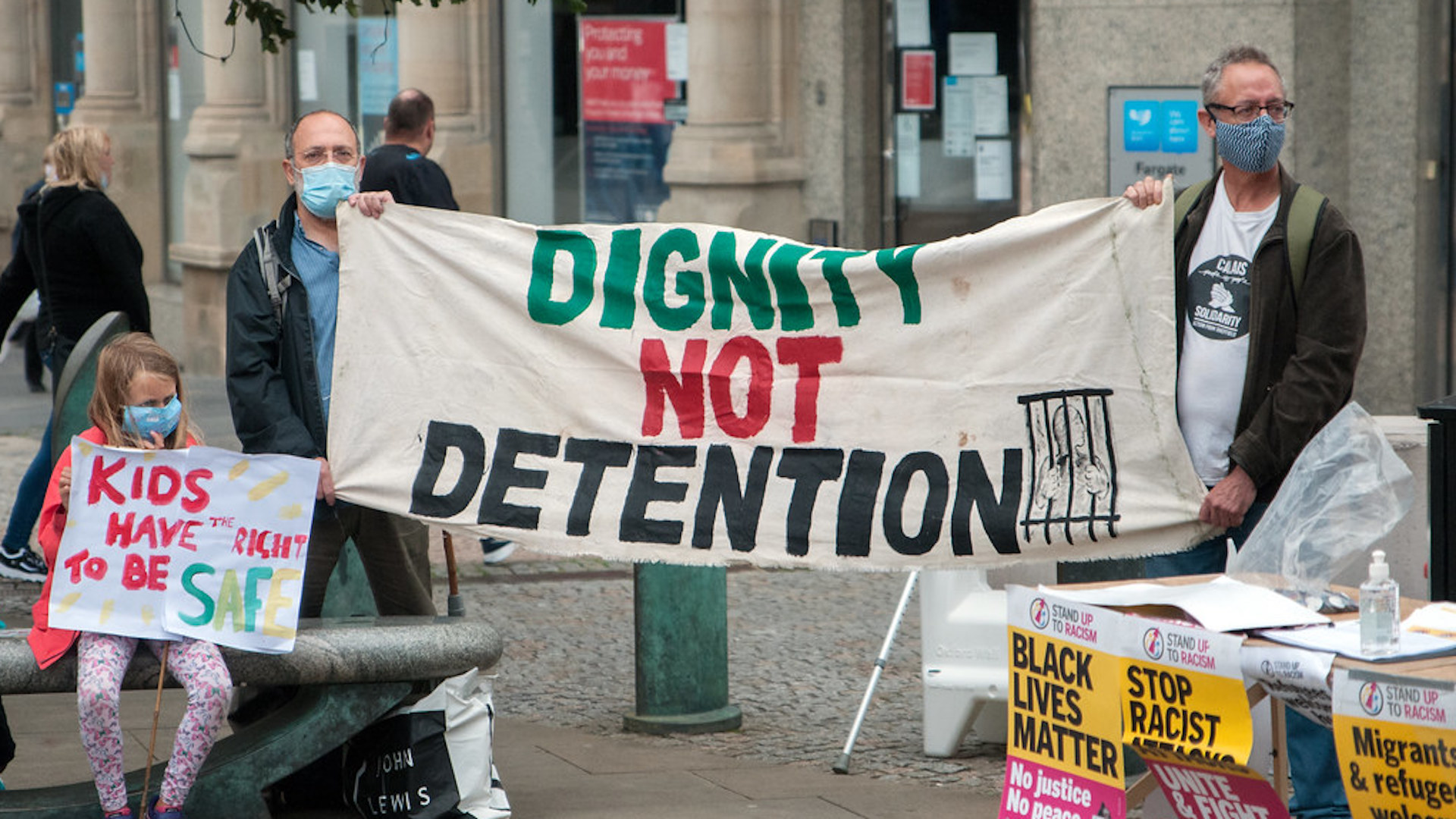Lockdowns have taken income away from hundreds of Big Issue sellers. Support The Big Issue and our vendors by signing up for a subscription.
“LGBTQ+ people and those fleeing political or religious persecutions will be left with no options,” said Satbir Singh, chief executive of the Joint Council for the Welfare of Immigrants.
“Those at our borders trying to reach family and friends in the UK will be pushed into the hands of people smugglers.”
The plans would create a “chaotic, dangerous and fragmented asylum system which will only make journeys into the UK more perilous,” he added.
The home secretary said the plans were designed to crack down on people smuggling by criminal gangs, and to ensure more people claim asylum in the first European country they arrive in rather than carrying on their journey to the UK.
But the new legislation will “do next to nothing to stop people making dangerous journeys” and “risk withdrawing support from desperate people,” said Nick Thomas-Symonds, shadow home secretary, when speaking in the House of Commons.
Advertising helps fund Big Issue’s mission to end poverty
Nearly 36,000 people made claims for asylum in the UK between 2019 and 2020, with the majority of people arriving from Iraq, Iran and Albania.
“These proposals draw a false distinction between people who make spontaneous asylum applications in the UK and those entering on to resettlement schemes,” said Marley Morris, associate director at the Institute for Public Policy Research.
“The home secretary has said she wants to learn the lessons of Windrush and deliver a compassionate immigration system that puts people first. Yet the reforms proposed today risk marginalising the people most in need of protection.
“Often there is simply no way for people to become a refugee through regular means. To create a separate refugee route with fewer rights for people who enter the UK via Calais will simply force them into more vulnerable situations, undermine their opportunities for integration, and further complicate an already labyrinthine system.”
The Home Office also aims to change the law so asylum seekers can be removed from the UK while their claim is pending.
Advertising helps fund Big Issue’s mission to end poverty
“This will keep the option open, if required in the future, to develop the capacity for offshore asylum processing – in line with our international obligations,” the Home Office said.
Ministers could be breaking Article 31 of the 1951 Refugee Convention, which states governments “shall not impose penalties” on refugees and asylum seekers on account of their illegal entry or presence in the country as long as they have good cause to be here, and don’t delay presenting themselves to authorities.
“It is positive that the government plans to continue its resettlement programme,” Morris added. “But we should be more ambitious and look towards alternative safe and legal routes for asylum, in order to stop the channel crossings and save lives.
“In particular, humanitarian visas could provide a safe way for people to enter the UK to claim asylum, reducing the need for people to make dangerous journeys across the Channel.”
The home secretary said the proposals – subject to a consultation open until May 6 – are in line with the Refugee Convention and the European Human Rights Convention.










